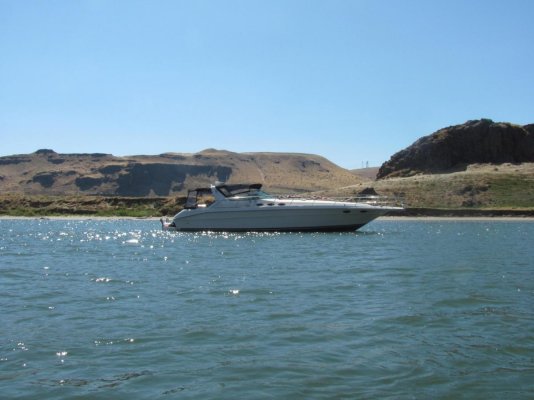Al---- You are making a mountain out of a molehill. I don't care what kind of engines you have in your boat. I don't care if you even
have a boat. I just find it amusing to read attempts to justify a power source that the industry turned its back on fifty years ago.
You say open my ears. Sorry, but I'm simply not interested in what some amateur boater with an old gas Tollycraft has to say on the subject. That may not be polite or tactful but it
is honest.
What I
am interested in, and what I
do open my eyes and ears to, is what I experience when I visit Maine and Prince Edward Island where there are hundreds if not thousands of commercial lobster boats. Thirty to forty-five foot boats that operate for hours at or near idle or running pot lines, and then get up on a near plane at 15 or 18 knots to get their catch to port. Every one of them (that I've seen or been on) is diesel powered.
Lobstermen have to make every penny count. If there was a better engine for the job, one that was less expensive to own and operate over time while doing the job they need it to do, they'd have it. And they all have diesels.
The fishing fleet in our marina is composed of purse seiners, crabbers, gillnetters, and combination boats. Same deal--- their boats have to cost as little as possible to own, operate, and maintain without compromising longevity and reliability. Diesel, everyone of them. I'm told even the purse seiners' net boats, ugly brutes of things that all used to be powered by huge Ford or Chevy V-8s, are mostly all diesel now.
So don't waste any more words trying to convince me that gas engines are worthwhile engines for boats like the one I have. Of course you and Eric and FF are certainly free to continue your armchair-theory discussion about the wonders of gas engines, but the boating world, at least the cruising and commercial part of it, bailed on gas ages ago.
As have I. Unlike you and I guess Eric and Fred, I do not believe a gasoline power plant is a viable power source for boats like mine, full stop. Eric is always admonishing me for not expressing my own opinions; well, there's one. I don't believe gas engines are "a fine source of power" for boats like mine. I think they're a crap source of power for boats like mine. Debating the issue is pointless as far as I'm concerned because in my view there is no issue to debate. All you have is an outdated idea to try to rationalize.
(This is where Northern Spy is supposed to jump in ad say, "But you
are debating the issue, dumbass.")
When the New England and Canadian lobster fleets, the Irish and North Seas langoustine fleets, the English Channel scallop fleets, the Persian Gulf dhow fleets, the PNW salmon fleets, and Grand Banks, Nordhavn,, Nordic Tug, and Fleming start putting gasoline engines in their boats, then you come talk to me about gas engines in boats and I'll listen.
Until then, it's just amateur forum fodder.








